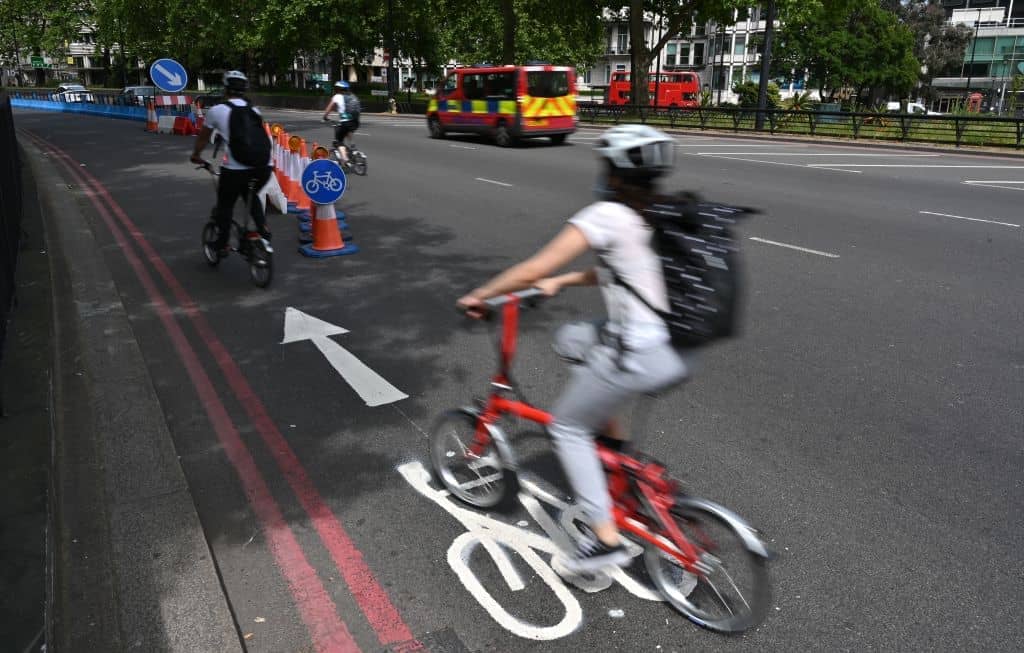London is the most congested city in the world and it’s the cycle lanes wot done it. That is the impression you will pick up from the headlines this morning.
‘Cycle Lanes Blamed as City Named Most Congested,’ reads a BBC headline, to take but one example. The story emerges, it turns out, from a global index published by transport consultancy Inrix, which claims that motorists in London spent an average of 148 hours in traffic jams this year, more than in any other country in the world. In the past year, the city climbed from being the 16th most-congested of those studied to the most congested of that lot.
This report has been enlisted as a weapon in the hundred years’ war between motorists and cyclists
But are the cycle lanes hurriedly put in during the lockdown, to provide for people to get about when they might not want to cram onto trains and buses, really to blame? It is true that Peter Lees, operations director at Inrix, has comments that the installation of cycle lanes has had ‘a negative impact on congestion’.

Get Britain's best politics newsletters
Register to get The Spectator's insight and opinion straight to your inbox. You can then read two free articles each week.
Already a subscriber? Log in







Comments
Join the debate for just £1 a month
Be part of the conversation with other Spectator readers by getting your first three months for £3.
UNLOCK ACCESS Just £1 a monthAlready a subscriber? Log in